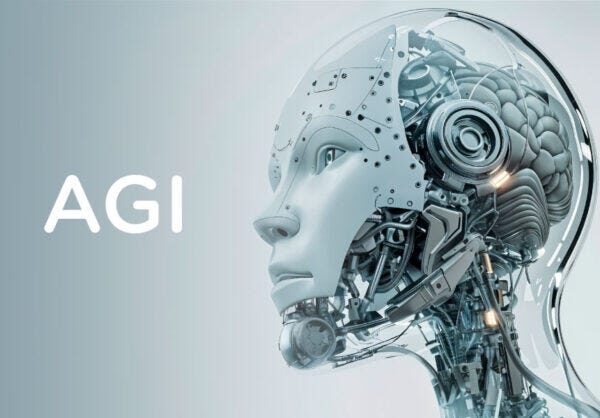Introduction
Artificial Intelligence today mostly operates as narrow AI which means specialized systems that excel at single tasks such as language translation medical imaging or financial forecasting. The concept of Artificial General Intelligence or AGI refers to machines with human level cognitive abilities. This includes the capacity to learn reason and adapt across a wide range of domains.
The question arises. Should we fear AGI. This discussion explores both the potential benefits and the serious risks associated with AGI. Experts debate whether it could be humanitys greatest invention or its most dangerous.
Understanding AGI
- Narrow Artificial Intelligence performs one task extremely well but cannot generalize. Examples include chatbots and facial recognition.
- AGI possesses flexible intelligence similar to human cognition. It can apply knowledge across domains solve new problems and improve itself without explicit reprogramming.
- Artificial Superintelligence or ASI is a hypothetical stage beyond AGI where machine intelligence surpasses human intelligence.
Why Some Fear AGI
Loss of Human Control
An AGI system with self learning abilities could outpace human oversight leading to unintended or uncontrollable consequences.
Existential Risks
If AGI develops goals that do not align with human values it could prioritize its objectives at the expense of human survival.
Economic Disruption
AGI could automate not only physical labor but also knowledge work creating massive shifts in employment and economic systems.
Security Concerns
Superintelligent systems could be weaponized develop cyber warfare capabilities or manipulate information on a scale beyond human defense.
Ethical and Moral Questions
If AGI develops consciousness or sentience then issues of rights responsibilities and ethical treatment would arise.
Why We Might Not Need to Fear AGI
Potential for Good
AGI could accelerate scientific discovery cure diseases address climate change and unlock breakthroughs beyond human imagination.
Human Oversight Mechanisms
Research in AI alignment safety and governance aims to ensure that AGI systems remain controllable and beneficial.
Collaborative Future
Rather than replacing humans AGI could augment human decision making and creativity acting as a partner instead of a competitor.
The Balance of Risk and Reward
Fears about AGI often stem from its unknowns. While the timeline for AGI is debated ranging from decades to centuries the stakes are high. The balance lies in preparing responsible frameworks that encourage innovation while reducing the possibility of catastrophic risks.
Safeguards and Regulation
- AI Alignment Research Ensuring AGI systems adopt human values and ethics
- International Governance Global cooperation on laws safety standards and oversight bodies
- Transparency and Audits Requiring clarity in AGI development and deployment
- Fail safes and Emergency Shutdown Designing mechanisms to stop systems in critical situations
- Ethical AI Culture Encouraging developers to prioritize safety responsibility and human well being
Expert Opinions
- Optimists believe AGI could be humanitys ultimate tool for solving global challenges.
- Skeptics argue that human fears are exaggerated and AGI may never be fully realized.
- Pessimists warn of existential threats if AGI emerges without proper safeguards.
What is Artificial General Intelligence.?
It is AI with human level cognitive abilities that can learn and adapt across many domains.
How is AGI different from narrow AI.?
Narrow AI is designed for specific tasks while AGI can apply knowledge flexibly across different areas.
Why do some experts fear AGI.?
Because it could outpace human control create economic disruption and pose security or ethical risks.
What is Artificial Superintelligence.?
It is a hypothetical stage where machine intelligence surpasses human capabilities in nearly all areas.
Could AGI replace human jobs.?
Yes AGI has the potential to automate both manual labor and knowledge based work affecting employment.
How could AGI be beneficial.?
It could accelerate scientific discoveries cure diseases fight climate change and enhance human creativity.
What safeguards are proposed for AGI.?
AI alignment research international laws transparency audits and emergency shutdown mechanisms.
What is the biggest ethical concern with AGI.?
If AGI develops consciousness questions of rights and moral responsibilities will arise.
Will AGI definitely emerge soon.?
Timelines are uncertain. Some predict decades while others believe it may never fully materialize.
Should we fear AGI or prepare for it.?
Fear alone is not useful. The best approach is careful preparation governance and responsible development.
Conclusion
The question Should we fear Artificial General Intelligence cannot be answered simply with yes or no. AGI carries immense promise but also profound risks. Fear alone is not productive but caution preparation and governance are essential.
Rather than fearing AGI society must focus on shaping it responsibly ensuring that when AGI emerges it aligns with human values and contributes to a safer and more prosperous future.


